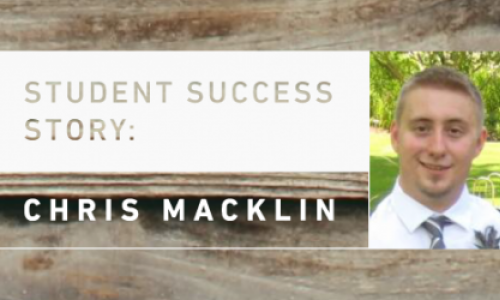
“Do you have a portfolio?”
When you think about the question itself, it is very simple. In form and construction, the only answer you will ever need is one of two options: yes or no. However, putting it into context changes the entire game. Ask this to a student, and more often than not, their answer is accompanied by a nervous grin, deep sighs, or both. Not only that, but usually the answer also comes with a certain explanation: “yes, but…”, “no, because…”
First, we have to understand what a portfolio is. It is a collection of documents and/or samples of work (i.e. writing) that you assemble together to show your future employer that you have the appropriate experience, skills, competencies and talent needed to do the job. It is a showcase of your best work, and while commonly seen in the design and creative industry, everyone should have one
How hard can it be? The answer depends on the person, but starting it can be tricky. Like all things, the hardest part is finding out how to start. As an upcoming student, assembling your portfolio is the most important indicator distinguishing your transition from student to professional. Most of us have already gone through this stage, so it’s not all that bad. It’s just one of those things where you venture into something new, and let your judgment lead your way. So for starters, here are a few tips that might help in paving the way to… *drum roll, please*…your first portfolio.
1. Define your strength. The more focused, the better.
With many students taking the same courses and applying for the same jobs, it is important to differentiate yourself from the others: Are you a great writer? A graphic designer? Or a stellar event planner? This paints a picture in your potential employers’ minds of your overall ability. You can also throw in a few other things (extracurricular activities, etc.), but 80-90% of your project selections should illustrate your strengths. Warren Berger, author of “Glimmer”, describes this as being a “T-shaped person”, where you can have a breadth of abilities, but have one skill that you know deeply.
2. Be proactive, find your own projects.
Settling for your school projects just won’t make the cut. The reason being is that your peers and classmates will be working on the same assignments/projects. So what makes you stand out? Your experiences outside of school. Having outside work, volunteering, and other extracurricular activities (athletics, personal interests, clubs, etc.) not only gives you more to flaunt, but also tells employers about your character. It shows you’re involved in activities outside school, can work with people other than your classmates, and can thrive outside an academic environment. Portfolio documents could be items like a newsletter or blog articles written, certificates of achievement like “Employee or Volunteer of the Month, Customer Service Award, Athletic achievements, Photographs, copies of your degrees, special training, workshops and/or reference letters, thank you notes, performance evaluations, to name just a few.
3. Maintain your portfolio
A portfolio is a living document. It evolves over time, in the same manner, and pace that a young professional progresses. It is a personal reflection of who you are and you can use it in your job search, during the interview, and even when you get employed at your performance review.
Keep in mind that you should be featuring newer work as your skills and experience progress over time. Don’t worry about not having the best right away as your first set is meant to get you off the ground. It gives you a starting point to grow from and provides you with visual feedback on how far you’ve come along since you first started. It can be quite encouraging.
Finally, have faith in your work. Who else would love it better than yourself? Present them in the best way that you can and highlight its most valuable elements. Leave your audience with something unforgettable about your portfolio, and then find ways to push your ability forward.














